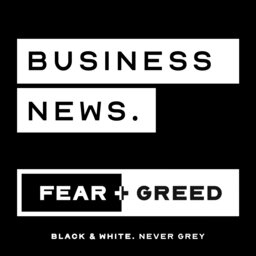Interview: Declining trust paints a bleak picture for Australia
The annual Edelman Trust Barometer paints a fairly bleak picture with a jump in people worried they are being lied to by government, business leaders and journalists.
Tom Robinson, CEO of Edelman Australia, joins Sean Aylmer in the studio to talk about the latest report - the 25th year of the Barometer. And while the findings are quite grim, there's a bit of positivity for Australian businesses.
 FEAR & GREED | Business News
FEAR & GREED | Business News


